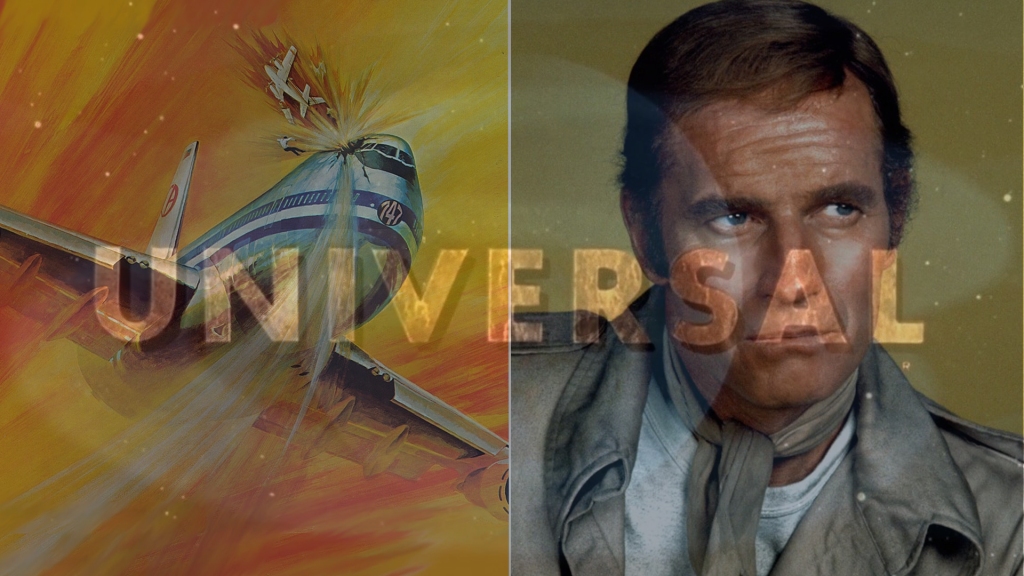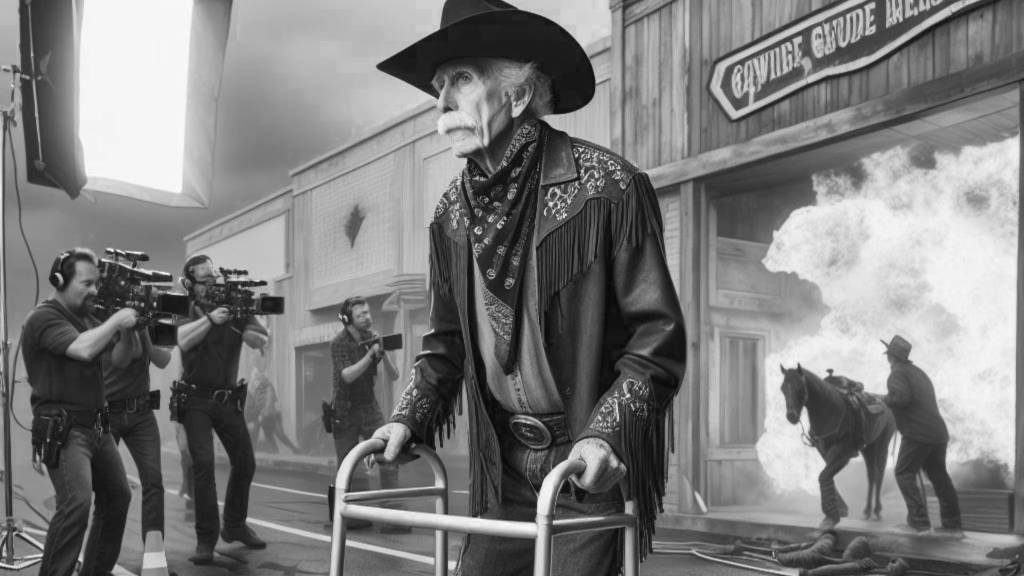

Tom McCarthy’s return behind the camera can be easily called a victim of circumstance and – to an extent – its own marketing mistakes. This story about an Oklahoma roughneck Bill Baker (Matt Damon), who goes to France to visit his imprisoned daughter Allison (the ever-wonderful Abigail Breslin) and then embarks on an impromptu detective quest to set her free in a country he does not understand at all, truly lends itself to be torn apart based wholly on how the film has been introduced into the zeitgeist. Problem is, Stillwater should not be torn apart, but lauded because it’s much greater than you might think.
A lot has been said about Damon’s character being difficult to get behind because of how easy it is to put a MAGA hat on him. Some controversy has surfaced regarding the fact the film was loosely inspired by Amanda Knox’s story (which I have already promised myself I’d respond to in a separated little piece). It is also easy to assume based on the available marketing material that the film in its spirit seeks to emulate the energy of a Liam Neeson-helmed thriller about an American going abroad to kick ass and chew bubble gum, but he’s all out of bubble gum, which is a risky manoeuvre given just how allergic to this brand of conservative rah-rah triumphalism the bulk of general audiences has become over the recent years.
But…
The first ten minutes of the film will quickly inform you that whatever preconceived notions regarding this movie you carried into the screening are simply wrong and you have fallen prey to your own dog whistle biases. Stillwater is not a Taken-meets-Prisoners thriller about a father seeking justice for his wrongfully incarcerated daughter. This movie is at best thriller-adjacent as it owes much more to Michelangelo Antonioni than anybody else. And this, my dear Reader, should lead you to realize that not only was Tom McCarthy interested in something else than executing an archetypal plot about one lone ranger’s quest for justice, but he was actively trying to trick you to think that he was in order to trap you in the cinema and ensnare you with the brilliance he has hidden beneath this strikingly familiar premise.
To understand what I mean here, I shall refer you to two Antonioni films: L’Avventura and Blow-Up, both of which entice the viewer with their superficially compelling plots – one is a play on The Lady Vanishes and the other one a variation on Rear Window. However, as their narratives slowly unfold it becomes clear that their supposedly central mysteries are completely irrelevant to the stories being told. L’Avventura isn’t a movie about solving a mystery of a vanished woman, but rather about how two people find each other in the aftermath of this incident and how they process their emotional turmoil. Equally, Blow-Up does not care about the mystery of a crime caught in a photograph half as much as it cares about exploring the anxiety and alienation of the man who tries to solve it. Similarly, Stillwater is not a thriller about a man seeking to find the real culprit of a crime his daughter was put in prison for committing. This story is an excuse to hold onto Bill Baker’s shoulder and realize that the movie is a powerful meditation on familial sins, redemption and the transference of karma between generations.
With this filter applied, Stillwater all of a sudden becomes a more fitting entry in Tom McCarthy’s directorial catalogue as it draws a direct parallel to his feature debut, a Peter Dinklage-starring Station Agent, which was also a potent rumination on alienation underpinned by a spectre of past traumas. However, to be completely frank, I don’t know if it would have been possible – or even advisable – to make the tethering of the two films a tentpole of the marketing campaign. At this point, I think the subversion of our expectations is a requirement to fully understand how this movie resonates and what it is attempting to accomplish.
We are supposed to get invested in this superficially woven story and hang onto Bill Baker as he yes-ma’ams his way through all his interactions, stubbornly confident that his deeply ingrained (or maybe projected by the viewer?) American exceptionalism will vindicate his cause. We are supposed to react, perhaps even negatively, to the fact he is a self-avowed gun owner and that if he could have, he would have probably voted for Trump. We are expected to develop our own opinion about his character based on such simple giveaways as a tattoo of a bald eagle with a skull in its claws that Baker has on his on his shoulder. McCarthy wants us to use these character wrinkles – Baker’s condescending tone, his persistence not to even attempt to utter a single word in French, his insistence on praying before meals, his righteous behaviour, all bolstered by what we think a conservative American roughneck might look like, behave like and think like – to build a mental stereotype… which McCarthy will immediately demolish when he lets us know that Stillwater is not what it seemingly says on the tin. In fact, the tin is fake, too. What is real, however, is this film’s humanity.
Only then, Stillwater will reveal itself as something more than a tried-and-true narrative about a man seeking to save his daughter and bring her safely back home. Sure, that’s what Bill Baker thinks he is after, but instead the story veers off the beaten track and comes to fruition as a meditation on what it takes for a man to understand his past mistakes. Bill has to travel to the end of the world to face his own past and realize that he is the reason why Allison is where she is. He is the one who drove her away and forced her to leave the country to study abroad. And it would seem that in the process of coming to terms with this multitude of regrets, secrets and past transgressions – most of which remain shrouded in mystery forever in a truly Antonioni-esque fashion – Bill gets his second chance. He meets Virginie (Camille Cottin), a single mother of Maya (Lilou Siauvaud), with whom he eventually bonds. It is as though the universe was letting him know that he gets to have a do-over and he might get the chance to become a father figure and a partner he should have been to his own biological daughter.
But life isn’t that simple and Stillwater isn’t a pile of Hollywood schmaltz that would even think for a second about indulging this notion either. Underneath the frosting of familiar dramatic beats and a promise of a momentous enigma being followed to its climactic conclusion lies not a sickly cake of expected deliverance but a bitter slab of life soaked in tears. McCarthy isn’t telling us a bedtime story but rather reminds us of how complex, brutal and unfair life can sometimes be and that none of what we interact with should ever be taken on face value. This is even spelled out during a seemingly throwaway scene where Virginie, an aspiring actress, convinces Bill to come and watch her perform. In one key shot she looks directly into the lens and utters the following words: “There is no truth. Only stories we tell.” At this point we might not realize the gravity of what she says, but this chicken eventually comes home to roost. This entire movie is about what we choose to believe, the choices we make and how we decide to interpret what’s in front of our eyes.
In a way, Stillwater comes full circle to embrace and respond to the criticism it likely anticipated it would experience. McCarthy uses the tone and language borrowed from Michelangelo Antonioni, Derek Cianfrance and Michael Roskam to develop a masterclass in narrative ambiguity, as his film both succeeds as a genre-adjacent rumination on the human condition, as well as a punching bag for dog whistle politics. Therefore, you are perfectly entitled to cherry-pick and latch onto Baker’s persona as a seemingly irredeemable face of conservative America, incapable of comprehending his own sins and seeing past the brim of his baseball cap. You are equally invited to ruminate over the tragic relay of karma depicted in this story and the fact we are unlikely to escape our own limitations as humans. We might try and give it our best shot but more often than not we will repeat our past mistakes. And, worst of all, we will have our hearts broken by witnessing our own children repeat those mistakes as well.
All in all, Stillwater has much more on offer than meets the eye. It’s not a piece of digestible entertainment one can ingest and excrete at their leisure. It’s a movie that will stay with you if you let it and won’t be swayed by your own preconceptions. Brooding, dark and perfectly subtle, it’s a powerful vessel to carry a conversation about family, relationships, and even modern politics in a roundabout way, all hidden beneath a promise of a familiar genre story. Stillwater is Tom McCarthy’s L’Avventura.




Leave a comment